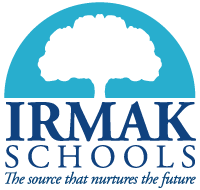Assessment-evaluation is an important part of teaching and learning. Assessment-evaluation helps in students and teachers determining new goals though alternate learning methods by determining what students know in different stages of learning, what they comprehend, and what they are able to do. The results of the recorded evaluations provide feedback to the student, teacher and parent with prepared reports. The regular evaluation of the program with the participation of the teachers and school administration, contributes to the improvement of the program over time.
Many different assessment and evaluation tools are used in order to measure what the student has learned and give direction to their future development. The work of students at preschool and elementary school level is continually monitored. Every stage of learning is monitored with preliminary evaluation, process evaluation and outcome evaluation. Preliminary evaluation has an important role in the determination of the existing knowledge of the student, their interest and learning style, process evaluation in the determination of learning deficiencies which the learning process continues, and outcome evaluation in the measurement of what has been learned. In addition the learning of students is evaluated using various assessment-evaluation tools and strategies such as rubrics, reports, checklists, exit cards, brain storming, mind maps, presentations, projects and observation. Irmak Okulları attempts to help students learn better, provide information on the learning level of students to students, teachers and parents, and develop the curriculum by measuring the learning of students. The information obtained from assessment-evaluation is shared with the parents and students at parent meetings, parent-teacher meetings, portfolio discussions directed by the student and progress reports, as well as inquiry unit reports.
In addition to assessment results, the evaluation includes student class participation, participation in class activities, research-analysis, scientific thinking, the wealth of ideas the student has and exhibits, taking of responsibility, predisposition to team work, the ability to share the information and findings that have been learned, and many similar observation based student activities. In addition in the 1-2-3rd grade levels, at the end of each term a general evaluation is made covering Turkish and Mathematics courses. The portfolio meeting hours for preschool and primary school level is informed to the parents. These meetings are an important process where alternate thinking regarding the learning of the student is carried out and shared with the family. For this reason portfolio dated and times cannot be changed except for valid excuses. (doctor’s report, business travel out of town)
Evaluation with Scores, Grades
As of 4th grade, in accordance with the Ministry of Education, courses with three or less hours a week have at least two, and courses with more than three hours a week have at least three written exams. The teachers apply the exams taking into consideration the general principles of assessment and evaluation, as well as the general objectives and benefits set out in the course program. The exam and the work for the evaluation of the student’s performance is evaluated over 100 points. The evaluation results are written as scores on the teacher’s grading charts, and are changed to a five grade and included in the report card. The exam result analysis where the areas the students are successful in are stated according to exam results, as well as the benefits they need to complete, can be followed on our website from 4th grade. The exam results are included on the system on the seventh day following the day of the exam.


